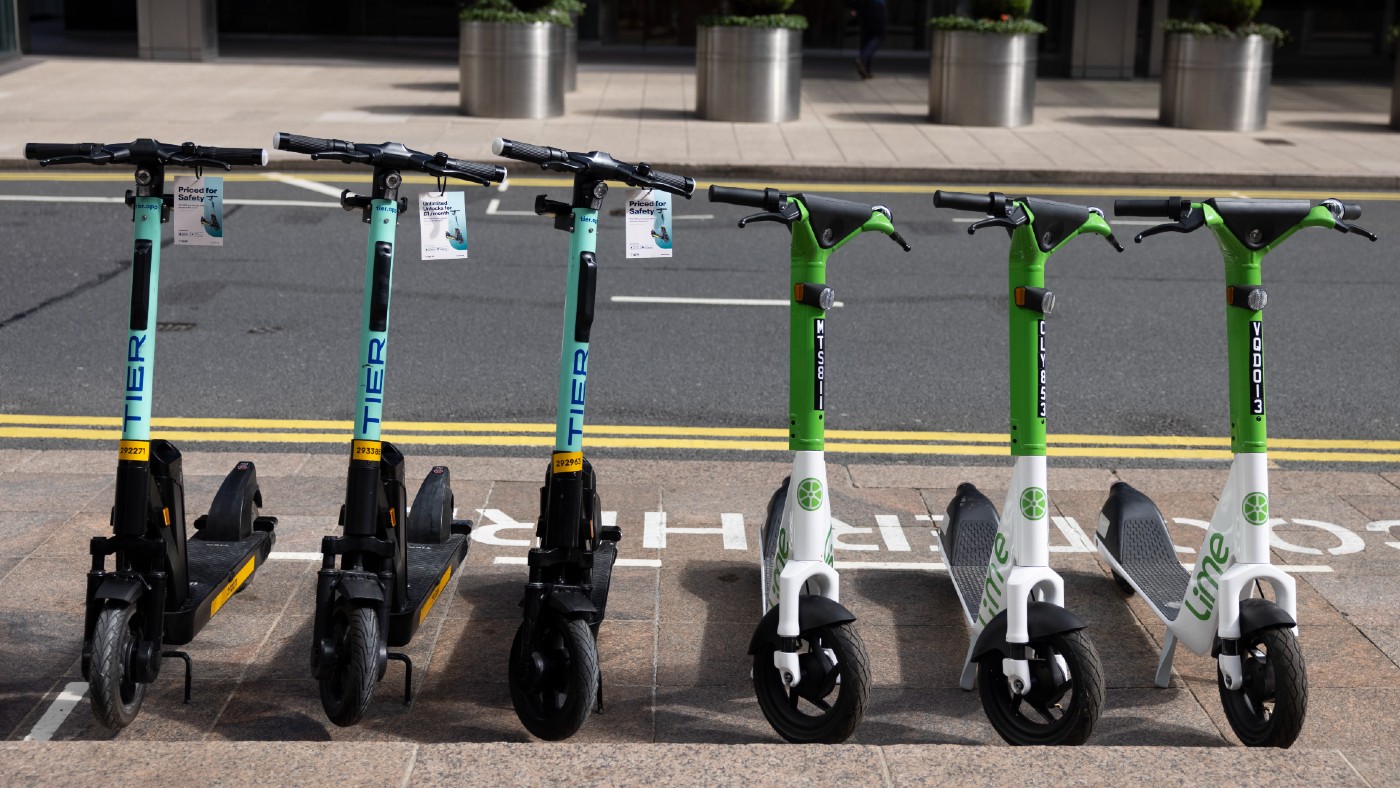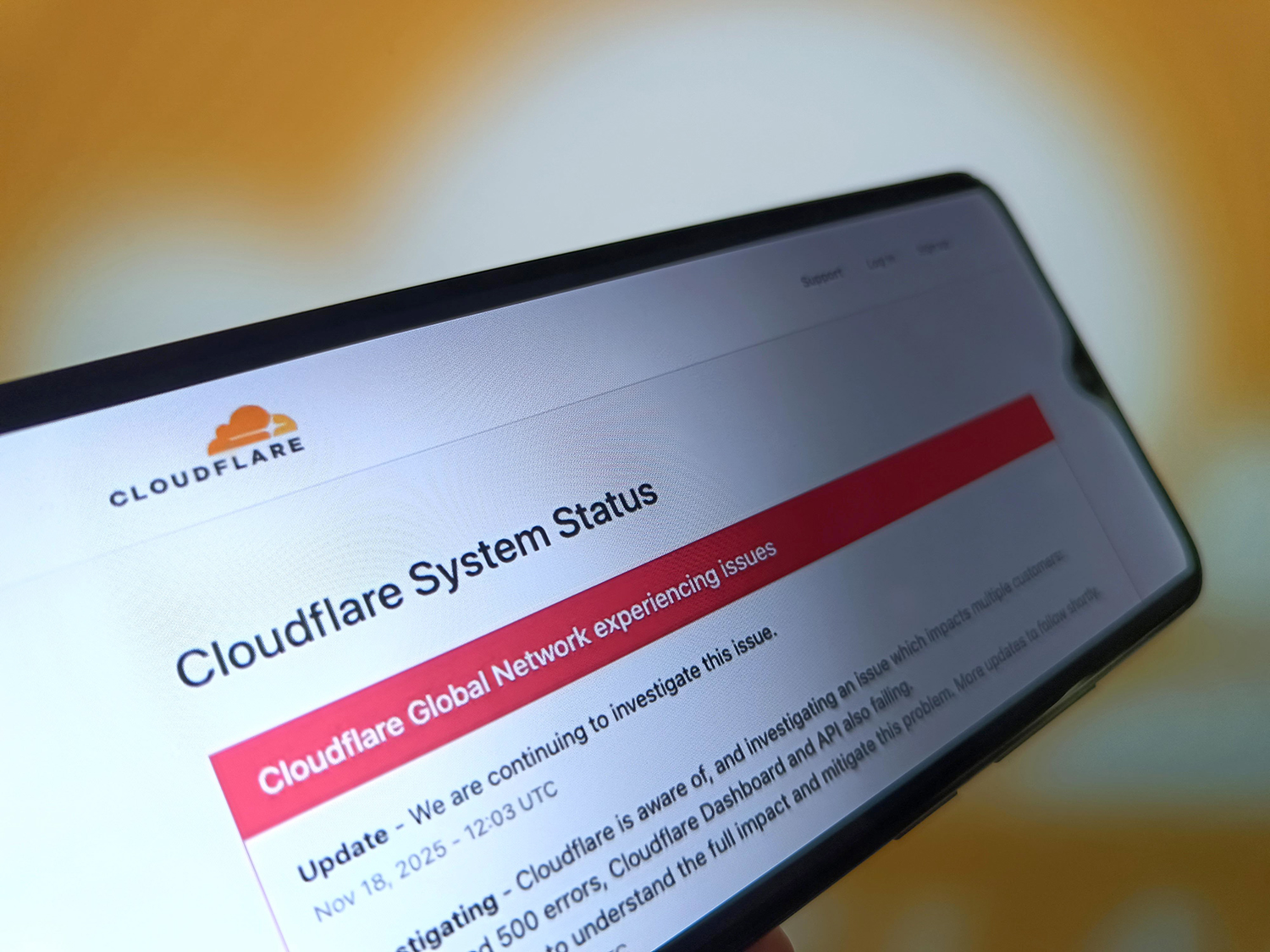The e-scooter invasion: can we cope?
London has become the latest UK city to launch a trial of e-scooters on public roads

A free daily email with the biggest news stories of the day – and the best features from TheWeek.com
You are now subscribed
Your newsletter sign-up was successful
“Travelling by scooter was once the preserve of children making their way to primary school,” said Kaya Burgess in The Times. No longer. Countless people have been buying electric scooters and flouting the law by riding them on public roads. Meanwhile, those who wanted to ride these devices legally have been able to do so under trial rental schemes in more than 40 UK towns and cities, including Birmingham and Manchester.
Last week, London followed suit, allowing five boroughs to experiment with hiring out e-scooters. For an initial £1, plus 15p a minute, users can zip along roads and cycle paths at a maximum speed of 12.5mph. Altogether, there are now more than 11,000 rental e-scooters in the UK, which have already been used for some three million trips, said Ellen Peirson-Hagger in the New Statesman. Scooters are a convenient, environmentally-friendly transport option that allows for social distancing. They are also a “fun” way to travel. Are they “set to become a mainstay of metropolitan life”?
As someone who occasionally likes to venture out on foot, I really hope not, said Jane Shilling in The Daily Telegraph. I’m with chief superintendent Simon Ovens of the Metropolitan Police, who has condemned unregulated e-scooters as “absolute death traps”. The people who whizz along on these silent devices seem to regard pedestrians as just “so many skittles to be bowled over”. The rise of e-scooters has posed a particular threat to blind and partially-sighted people, said Chris Theobald on Transport-Network.co.uk. Legalising the public use of these devices “would have a dramatic and irreversible effect on our streets”.
The Week
Escape your echo chamber. Get the facts behind the news, plus analysis from multiple perspectives.

Sign up for The Week's Free Newsletters
From our morning news briefing to a weekly Good News Newsletter, get the best of The Week delivered directly to your inbox.
From our morning news briefing to a weekly Good News Newsletter, get the best of The Week delivered directly to your inbox.
Let’s not write off e-scooters on the basis of their misuse by some rogue riders, said Annabel Denham in The Spectator. They’re no more dangerous than other forms of transport such as cars and bikes, which can likewise be abused. Legalising them would improve standards by allowing more regulation and providing safety in numbers. Users would join other e-scooter riders on the roads and be less tempted to veer onto pavements. This is one of the fastest-growing technologies of all time: “e-scooters are expected to surpass half a billion rides globally by the end of this year”. Given that a third of these rides replace car journeys, that represents a lot of saved CO2 emissions and congestion. We can hardly afford to pass those benefits up. True, e-scooters carry some perils, but we cannot live entirely risk-free lives. “What we can do is live ones with added convenience, lower transport costs, and a little less pollution.”
A free daily email with the biggest news stories of the day – and the best features from TheWeek.com
-
 The ‘ravenous’ demand for Cornish minerals
The ‘ravenous’ demand for Cornish mineralsUnder the Radar Growing need for critical minerals to power tech has intensified ‘appetite’ for lithium, which could be a ‘huge boon’ for local economy
-
 Why are election experts taking Trump’s midterm threats seriously?
Why are election experts taking Trump’s midterm threats seriously?IN THE SPOTLIGHT As the president muses about polling place deployments and a centralized electoral system aimed at one-party control, lawmakers are taking this administration at its word
-
 ‘Restaurateurs have become millionaires’
‘Restaurateurs have become millionaires’Instant Opinion Opinion, comment and editorials of the day
-
 Moltbook: The AI-only social network
Moltbook: The AI-only social networkFeature Bots interact on Moltbook like humans use Reddit
-
 Are AI bots conspiring against us?
Are AI bots conspiring against us?Talking Point Moltbook, the AI social network where humans are banned, may be the tip of the iceberg
-
 Silicon Valley: Worker activism makes a comeback
Silicon Valley: Worker activism makes a comebackFeature The ICE shootings in Minneapolis horrified big tech workers
-
 AI: Dr. ChatGPT will see you now
AI: Dr. ChatGPT will see you nowFeature AI can take notes—and give advice
-
 Metaverse: Zuckerberg quits his virtual obsession
Metaverse: Zuckerberg quits his virtual obsessionFeature The tech mogul’s vision for virtual worlds inhabited by millions of users was clearly a flop
-
 The robot revolution
The robot revolutionFeature Advances in tech and AI are producing android machine workers. What will that mean for humans?
-
 Texts from a scammer
Texts from a scammerFeature If you get a puzzling text message from a stranger, you may be the target of ‘pig butchering.’
-
 Blackouts: Why the internet keeps breaking
Blackouts: Why the internet keeps breakingfeature Cloudflare was the latest in a string of outages